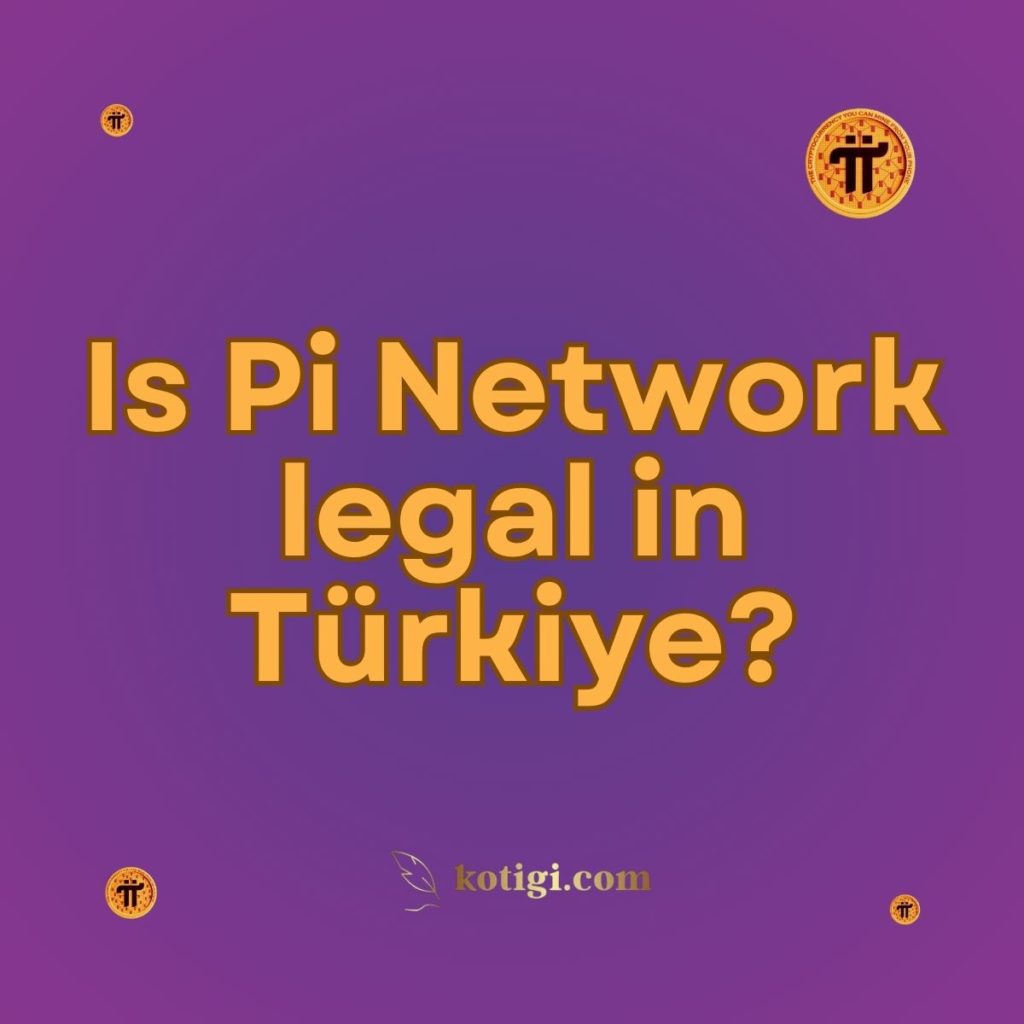
Is Pi Network legal in Türkiye?
Yes, Pi Network is currently legal in Türkiye. However, the legal landscape for cryptocurrencies, including Pi Network, is still developing in Türkiye, and regulations are subject to change as the government continues to refine its stance on digital assets. Here is an overview of the current regulatory status of Pi Network in Türkiye:
1. Regulatory Status in Türkiye
Cryptocurrencies are not banned in Türkiye, but there are specific regulations governing their use. The country does not have dedicated legislation specifically targeting Pi Network or similar projects. However, cryptocurrencies are not recognized as legal tender, and the Central Bank of the Republic of Türkiye (CBRT) has taken a cautious approach towards digital assets.
The Regulation on the Non-Use of Crypto Assets in Payments, which came into effect in April 2021, prohibits the use of cryptocurrencies and crypto assets for payment purposes. This means that while individuals can buy, sell, and hold cryptocurrencies, they cannot use them directly for goods and services.
2. Oversight by the Central Bank and Regulatory Authorities
Türkiye’s regulatory authorities, including the CBRT and the Capital Markets Board (CMB), oversee the financial sector and the regulation of digital assets. If Pi Network evolves to include features that involve financial transactions or tokens that are tradable, it would likely fall under the purview of these authorities and need to comply with their regulations.
The CMB is responsible for regulating securities and capital markets. If Pi Network’s tokens are deemed to be securities, the project will have to comply with CMB regulations, which could include registration, disclosure, and reporting requirements.
3. Anti-Money Laundering (AML) and Know Your Customer (KYC) Regulations
Türkiye has strict Anti-Money Laundering (AML) and Know Your Customer (KYC) regulations in line with international standards. If Pi Network introduces exchange or trading features or if its tokens are used in a way that involves value transfer, the platform must comply with these regulations to ensure the prevention of illicit activities. This includes verifying users’ identities and reporting any suspicious activities to relevant authorities.
4. Taxation and Consumer Protection
In Türkiye, the taxation of cryptocurrencies is still a developing area. While there are no specific tax laws for cryptocurrencies, profits derived from trading or investing in digital assets like Pi Network are subject to general income tax provisions. Users are advised to report their earnings and consult with a tax professional for compliance.
Consumer protection laws in Türkiye require that all businesses, including crypto-related platforms, operate transparently and fairly. If Pi Network offers services or engages in any activities that involve Turkish citizens, it must ensure compliance with these laws to protect users from misleading practices or fraud.
5. Future Considerations and European Union (EU) Influence
Although Türkiye is not an EU member, it often aligns its financial and regulatory standards with EU directives. As the EU is moving towards a comprehensive regulatory framework for digital assets with the Markets in Crypto-Assets (MiCA) regulation, it is likely that Türkiye could consider similar approaches or adapt some of these standards to its regulatory landscape for cryptocurrencies.
Conclusion
Pi Network is currently legal in Türkiye, but its future regulatory status will depend on how it evolves and complies with the country’s existing and future regulations for digital assets. The legal framework for cryptocurrencies in Türkiye is still developing, so users should stay informed about any regulatory updates to ensure compliance and minimize risks. As Pi Network continues to develop, particularly if it introduces tradable tokens or features involving financial transactions, it will need to adhere to Türkiye’s regulations on AML, KYC, taxation, and consumer protection.




